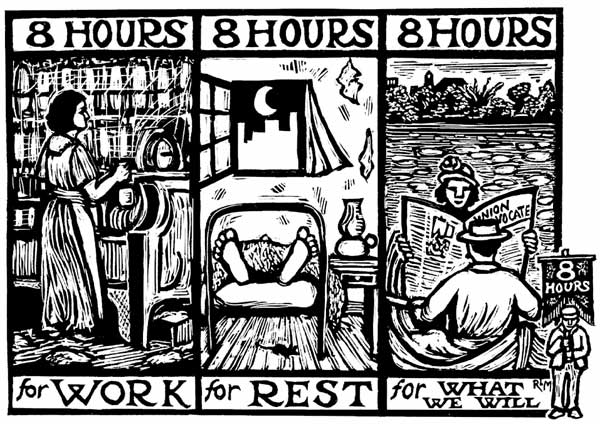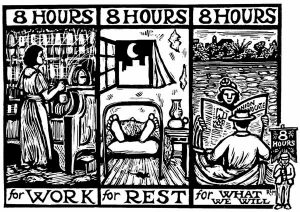If you haven’t guessed by reading this blog, I’m unabashedly liberal. I’m about as progressive as you can get.
Labor Day, however, reminds me of one issue I struggle with – organized labor.
I’ve been on both sides of this issue. I’ve belonged to two unions, one very powerful, the other very weak. I’ve also been in management now for most of my career, though I’ve never managed unionized labor.
Trade shows are a marketer’s responsibility, everything from design through logistics and execution. (As an aside, one of the best decisions I ever made was to outsource the logistics and execution portion.) If you’re a marketing leader with responsibility for a P&L, you know they’re not cheap. But what’s disturbing is what happens when you have a show in a heavily unionized city – Chicago, Detroit, or New York, for example. Costs immediately skyrocket. You may not be allowed to set up your own booth. Until recently in Chicago, many halls required that you have an electrician plug in your equipment for you. If you have a pallet that has to be moved on a forklift, you have to have a three-person crew, which pretty much eliminates the efficiencies of a forklift. There’s just endless waste, driven by union rules.
Then there was my girlfriend Suzanne’s experience as a recruiter for skilled labor here in Georgia, a right-to-work state. She had candidates who worked in union jobs coming to Georgia knowing they’d never make anywhere near what they made in their union positions. For example, a woman who had been with the UAW, and made $50 an hour stapling headliners into cars. She was qualified for the position, but the company for which Suzanne was recruiting was gun-shy about hiring her, thinking she’d leave as soon as she could make more money. She didn’t get the job.
On the other side of that coin we have a minimum wage that hasn’t kept up with inflation. We have contract jobs with no protections for safety or health, at low wages. We have skilled trade jobs going unfilled because there aren’t enough people to go into them, and few apprentice programs, which historically would be offered by unions. We have low-wage positions with lousy working conditions that could benefit from organization. I don’t see many new unions being formed for these folks.
Organized labor creates power for workers. Sometimes that power helps right wrongs. Sometimes that power becomes too great and creates waste. Click To TweetIf you’re expecting an answer to this question, I don’t have one. I’m stuck in the conundrum that organized labor creates power for worker populations. Sometimes that power helps right wrongs. Sometimes that power becomes too great, and creates waste. Unfortunately, we humans aren’t good at controlling ourselves when offered power.

